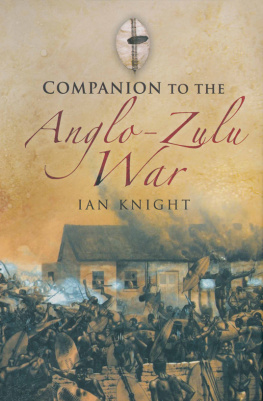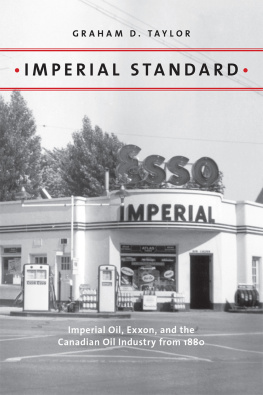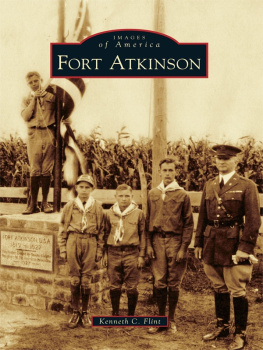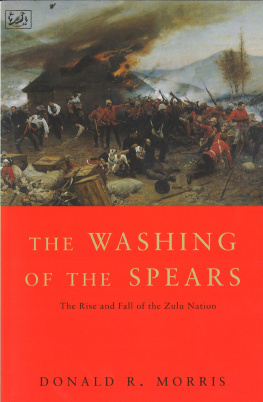LAST OUTPOST ON
THE ZULU FRONTIERS
THE HISTORY OF MILITARY OCCUPATION
Edited by John Laband
and Ian F. W. Beckett
A list of books in the series appears
at the end of this book.
LAST OUTPOST ON
THE ZULU FRONTIERS
Fort Napier and the
British Imperial Garrison
GRAHAM DOMINY
UNIVERSITY OF ILLINOIS PRESS
Urbana, Chicago, and Springfield
2016 by the Board of Trustees
of the University of Illinois
All rights reserved
Manufactured in the United States of America
c 5 4 3 2 1

This book is printed on acid-free paper.
Library of Congress Cataloging-in-Publication Data
Names: Dominy, G. A. (Graham Andrew)
Title: Last outpost on the Zulu frontiers : Fort Napier and the British imperial garrison / Graham Dominy.
Description: Urbana : University of Illinois Press, 2016.
Series: The history of military occupation
Includes bibliographical references and index.
Identifiers: LCCN 2015035921| ISBN 9780252040047 (cloth : acid-free paper) | ISBN 9780252098246 (e-book)
Subjects: LCSH : GarrisonsSouth AfricaKwaZulu-NatalHistory. | Fort Napier (South Africa)History. | Frontier and pioneer lifeSouth AfricaKwaZulu-Natal. | BritishSouth AfricaKwaZulu-NatalHistory. | ColonistsSouth AfricaKwaZulu-NatalHistory. | SoldiersSouth AfricaKwaZulu-NatalHistory. | ImperialismSocial aspectsSouth AfricaKwaZulu-NatalHistory. | KwaZulu-Natal (South Africa)ColonizationHistory. | KwaZulu-Natal (South Africa)History, Military. | Great BritainColoniesAfricaHistory. | BISAC: HISTORY / Military / General. | HISTORY / Africa / South / Republic of South Africa. | HISTORY / Europe / Great Britain.
Classification: LCC U375.S6 D65 2016 | DDC 355.709684/75dc23
LC record available at http://lccn.loc.gov/2015035921
For Anne, with love
Sine qua non
In the town itself the streets were prickly with waxed moustaches. Blanco and brass polish stood high on the list of lifes necessities. In the Imperial Hotel the mornings and afternoons were liquid among potted plants and wicker chairs with the music of a Palm Court orchestra. Sam Browne belts and whalebone waist pinchers restrained the officers and their wives who listened to the whine of the violins and recalled the shires and parishes of England with thankful melancholy. Many would never return and those who stayed and were not buried in the military cemetery in Fort Rapier would build their houses as close to the Governors mansion as their seniority and overdrafts allowed.
While the garrison stayed Piemburg prospered. Piemburg was even, briefly, gay. The Garrison Theatre was made brilliant by performances of plays and revues that bred one great English actor and playwright and charmed the Governor and his wife. Bazaars and garden parties were bright with the parasols and bustles of wives who had been swept from the terraced suburbs and semi-detached houses of South London to the grandeur of the lawns and shrubberies of Piemburg by the surprising good fortune of having married husbands whose mediocrity won for them the reward of being posted to this distant sliver of the empire. The taste of the Victorian lower middle class imposed itself indelibly on Piemburg and has stayed there to this day. And with the taste there came an immutable sense of hierarchy. Viceroys, governors, generals, vice-governors, colonels, down the ranks swept, broadening as they went, through nuances too subtle to enumerate, where schools and wives fathers professions and a dropped aspirate or one retained g could cause a major to step in an instant above a lieutenant-colonel. At the bottom of the scale came private soldiers in the pay corps. Below these pariahs there was nothing left. Zulus competed with Pondos, Coloureds with Indians. What happened down there was simply nobodys concern. All that one had to know was that somewhere even lower than the loyal Zulus and the treacherous Pondos there were the Boers.
TOM SHARPE , Riotous Assembly
Contents
Preface
The Whys and Wherefores
The Last Outpost: Why the Fort Napier Garrison?
Military occupations during wartime are the stuff of drama and trauma and expose many fault lines in the occupied societies. German-occupied France during World War II is an obvious example, yet such occupations are often of relatively short duration. Colonial occupations are often longer-lasting, and their impact can be more varied. The British military presence in Natal lasted for seventy-one years, and it has had a sustained and profound impact on surrounding societies.
The occupation of Fort Napier was the longest British occupation of a single fort in South Africa (with the exception of the Castle of Good Hope in Cape Town), and almost certainly in the whole of Africa. It profoundly influenced the heterogeneous communities around it, and its influence lasted long after British withdrawal. The duration of the occupation of Fort Napier even exceeded the British military occupation of their most important base in Ireland on the Curragh, in County Kildare, by four years.
This study focuses on the underplayed peacetime role of the Natal garrison, but comparisons will also be drawn with other imperial garrisons in North America, the Mediterranean, and Australasia. Halifax, Nova Scotia, protected an important North Atlantic naval base and what are now known as the Canadian Maritime provinces. It was also a garrison of considerable longevity. Gibraltar, at the western end of the Mediterranean, was also a critical naval base and has an even greater longevity as a garrison. In Australia, Bathurst in New South Wales and Port Arthur in Van Diemens Land (now Tasmania) were convict stations with small military garrisons. Auckland in New Zealand shared a characteristic with Fort Napier in that it protected settlers from a powerful indigenous foe.
Natal, as one of four provinces in white-voting and white-ruled South Africa, was the most English and pro-British of all and voted overwhelmingly against the establishment of the Afrikaner-dominated republic in 1961. The other white-ruled provinces joked, with weary resignation, about the Last Outpost. So what is the origin of the term, outside the caricature cemented into the chants of rugby fans at big matches?
The term can be traced to an unpublished memoir penned in 1943 by one of the scions of settler notability, Denis Shepstone, the administrator of the Province of Natal and grandson of the famous colonial administrator, Sir Theophilus Shepstone.
The use of the phrase in public discourse apparently began in 1970, when the New Zealand All Black rugby team was touring South Africa, shortly before the anti-apartheid sports boycotts took effect. Not a single Natal player had been selected for the national Springbok rugby team. Tommy Bedford, the most prominent Natal player, said, somewhat bitterly, at a banquet in Durban in honor of the visiting New Zealanders, Welcome to the last outpost of the British Empire. The sport of rugby had been brought to Natal by the troops of the garrison, and the ideologies of empire were underpinned by the garrison. The after-effects of the prolonged occupation of the garrison still resonate, and its study might go some way to explaining the soubriquet.
The Last Outpost in relation to Natal and its hankering after a vanished imperial past resonates with similar yearnings in Australia. Craig Wilcox has coined the phrase red coat dreaming to describe the study of widespread respect for the armyof basking in victories won and last stands endured, of barracking loudly from the sidelines as the troops went to war, of occasional enlistments and living among veterans, of the way almost no one was quite immune to the beguiling color and historic associations of the red coat.


 This book is printed on acid-free paper.
This book is printed on acid-free paper.







